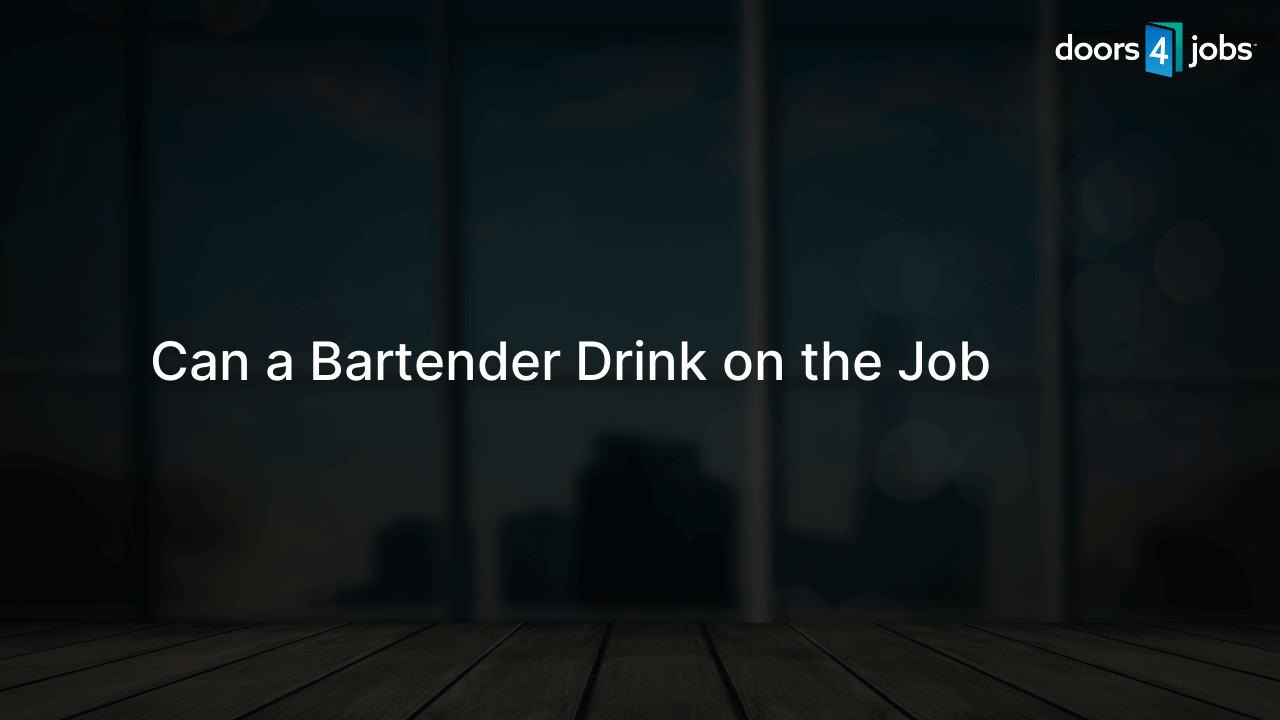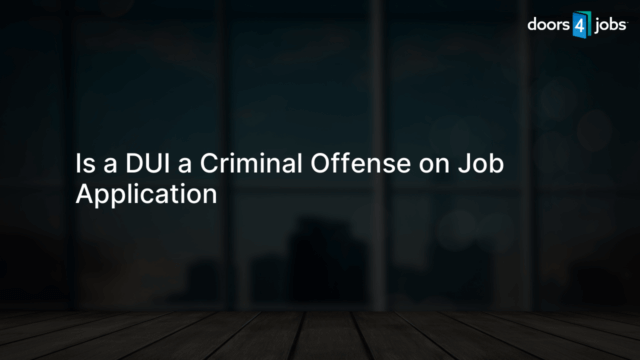While some bars might allow bartenders to drink on the job, it is generally considered unprofessional and can lead to impaired decision-making, reduced productivity, and potential legal issues. It is advisable for bartenders to avoid drinking while working to maintain a professional image and provide the best possible service to customers.
Drinking on the Job: Common Concerns
As a bartender, you may be exposed to alcohol and wonder whether you can partake during working hours. The answer to ‘Can a bartender drink on the job?’ is not a simple one-size-fits-all response. Policies vary from establishment to establishment; however, several considerations should be taken into account before consuming alcohol on the job.
Employer Policies and House Rules
Before even considering a drink at work, it’s essential to know your employer’s policies and house rules. Many establishments strictly forbid employees from consuming alcohol during work hours to maintain a professional atmosphere and prevent misconduct. Always adhere to your workplace’s policies and remember to respect the rules in place.
Laws and Regulations
Depending on your country, state, or city, it could also be illegal for a bartender to drink on the job. Strict regulations may forbid bartenders from consuming alcohol while serving customers. Familiarize yourself with local and regional laws to ensure compliance and avoid potential legal ramifications.
Impact on Job Performance
Drinking while working can negatively affect your job performance. Alcohol impairs judgment, coordination, and reaction times, which may result in slower service, incorrect orders, or even injuries. It’s crucial to provide the best possible experience and serve customers promptly and proficiently.
Customer Perceptions and Professionalism
Even if your establishment allows bartenders to drink on the job, doing so can impact perceptions of professionalism. Customers want to know that their bartender cares about their experience and can reliably manage their needs. Refraining from drinking during work hours demonstrates your commitment to maintaining a high level of service and offers customers peace of mind.
Responsible Alcohol Service
As a bartender, it’s your responsibility to serve alcohol with discretion and ensure that customers don’t become overly intoxicated. Drinking on the job can cloud your judgment, making it difficult to assess when to stop serving a customer. By staying sober, you can better detect when to cease alcohol service and avoid potential incidents or accidents.
Alternatives to Drinking on the Job
It can be challenging to resist the urge to drink when working in a bar, but there are alternatives to help you maintain sobriety while on duty. Instead of consuming alcohol, consider non-alcoholic beverages such as mocktails, soft drinks, or water. These options can keep you refreshed and hydrated, while also preventing potential adverse effects on your job performance.
Handling the Social Aspect
One of the reasons bartenders might fall into the trap of drinking on the job is the social aspect of working in a bar environment. While it’s essential to interact with customers and establish relationships, you should draw a line between being sociable and indulging in alcohol consumption. Engage in conversation, share stories, and listen to customers while maintaining a professional demeanor and without compromising your sobriety.
Setting Personal Boundaries
Bartending can be a demanding and high-pressure occupation, making it crucial to set personal boundaries. Be prepared to kindly and firmly decline offers of drinks from customers, and always inform them of your duty to remain sober while working. Establish self-discipline and assertiveness to ensure you can enjoy a successful career as a bartender without compromising your well-being.
Staying Sober and Safe
Sobriety at work not only ensures better job performance but also helps maintain safety in bars and clubs. By refraining from alcohol consumption, you can prevent accidents and enforce responsible alcohol service for your patrons. Additionally, staying sober throughout your shift minimizes the risk of lowering inhibitions, which could result in inappropriate behavior and jeopardize your clientele’s security.
Frequently Asked Questions (FAQ)
This FAQ section covers a selection of commonly asked questions related to bartenders drinking on the job, offering direct and concise answers to help deepen your understanding of this topic.
Is it illegal for a bartender to drink while working?
The legality of bartenders consuming alcohol while working depends on local, regional or national laws. It is vital to familiarize yourself with the specific regulations in your area and adhere to them to avoid legal consequences.
Do most bars have a policy on employee alcohol consumption?
Yes, most bars and establishments have a policy on employee alcohol consumption. These policies vary, but many either strictly regulate or outright prohibit drinking on the job to maintain a professional work environment and responsible alcohol service.
Why should bartenders avoid drinking on the job?
Bartenders should avoid drinking on the job to remain professional, provide exceptional service, and make responsible decisions regarding alcohol service. Alcohol consumption can impair judgment, decision-making, and coordination, which may negatively affect job performance and customer experience.
Can bartenders accept drinks purchased by customers?
While customers may offer to buy bartenders a drink, it is crucial for bartenders to exercise discretion and consider their establishment’s policies, as well as their duty to remain sober while working. Instead, bartenders can politely decline or suggest a non-alcoholic alternative.
How can bartenders create an enjoyable environment without drinking on the job?
Bartenders can create an enjoyable environment by engaging with customers through friendly conversation, sharing stories, and active listening, all while maintaining professional boundaries and sobriety. Commitment to exceptional service and responsible alcohol handling is crucial in fostering a positive environment.











